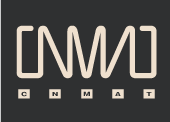OpenSound West presents an evening of improvised music: Paul Hoskin/Greg Powers meets Ueno/Ingalls
Paul Hoskin began playing contrabass clarinet in the summer of 1985. Utterly self-taught, his reed playing life started in the fall of 1980--c melody saxophone, then clarinet, and the bass clarinet exclusively by the spring of 1981. Baritone saxophone added in the spring of 1984. Hoskin performs (and performed) extensively throughout the United States and Europe. Paul's solo oeuvre is initiated in Seattle June 1986. The fall of 1986 finds himself in Eastern Europe—seven solo performances in twelve days. As solo language develops, Hoskin begins the extended contrabass clarinet work. Ninety minutes continuosly (a switch of technology commands its current eighty minute form). The growth and definition of his solo work is part and parcel of the decade of music life in New York City (1986-1995). Three different ensembles (The Same, Trigger, Dierker/Meehan/Hoskin) provided Hoskin with musics of many sorts. Paul's life as an organizer for an improvised music community is also shaped. Seattle is returned to in 1996. And, solo language, multiple creative ensemble work, endless ad hoc meetings are resuscitated. Different people, different coast. A brief stay in Astoria, Oregon (2006-2009) reinvigorated the organizer chunk of his work. And, fortunately, the Oregon chapter managed to put Paul in touch with the Bay Area creative music world.
Greg Powers and his UW music education led directly and accidentally to a life of creative music exploration. A developer of the Red Square in the Full Moon in the late seventies. A campus scene--posters of a mysterious, barely legible form annouced the full moon and music. Folks spread out over the Red Square (with the light of the moon) making sound. (Paul Hoskin's first place to play with others.) A co-founder of FR3D (with Jeffrey McGrath); he jumps (or falls into) other creative music endeavours. As the eighties continues, a participant in the New Arts Orchestra--founded by Jeffrey Morgan and Paul Hoskin--with theatrical performances and open compositions. The initial Seattle Festival of Improvised Music was one of his locales as well. In the late nineties, Greg was a part of BOLT--a reed/brass quartet devoted to improvisation. Angelina Baldoz-trumpet; Aimee Sullivan-saxophones; Greg Powers-trombone, tuba; Paul Hoskin-contrabass clarinet. All this time, Greg studies Indian music--and it continues. "Pran" is trombonist Greg Powers and didjeridu player Stuart Dempster improvising in the Dagarbhani style of Hindustani Music. Powers is the only trombonist in the world performing this ancient style of music. He is a pioneer in adapting Indian music to the trombone and, together with Dempster's droning Brass Didjeridu, creates a hypnotic texture that is true to the tradition. Greg Powers is a disciple of the Dagarbhani tradition and has studied with Jeff Lewis, Ustad Farid'uddin Dagar, Uday Bhawalkar, Baha'uddin Dagar and Wasif'uddin Dagar in Seattle and Mumbai. As a Fulbright Fellow to India he studied with Ustad Yunus Hussein Khan in New Delhi. He is a graduate of the University of Washington where he was a trombone student of Stuart Dempster. Web site: http://www.myspace.com/dhrupadtrombone
The duo of Ken Ueno (vocals) and Matt Ingalls (clarinet) bring together an arsenal of extended techniques for an experience that defies classical expectations of sounds that can be made on voice and clarinet. Ueno sings overtones, multi-band multiphonics, sub-tones, and throat sings. Ingalls’ clarinet technique includes circular-breathing, multiphonics, and various breath effects, as well as an unique hybrid-timbre polyphonic effect. Please visit: www.kenueno.com and http://www.sfsound.org/matt.html/

